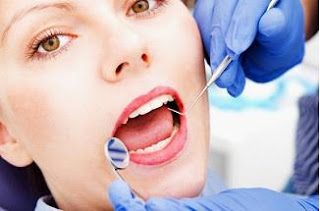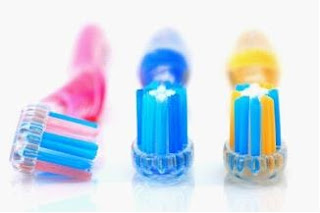This four-part article series sets about explaining and dispelling the many common myths and misconceptions surrounding oral health and hygiene and certain dental procedures.
Welcome to the final installment of our four-part article series in which we speak to dental implants specialists in Phoenix about the various myths and misconceptions surrounding oral health, hygiene and dental treatment. In our previous article post, it was explained that using toothpicks after a meal cannot widen the spaces between your teeth and that they should never take the place of brushing and flossing. The various causes of bad breath were also explored, revealing many more culprits than just poor oral hygiene. Now, in the final article installment of this series, we shall take a look at two final myths...
Myth # 7: If you’re pregnant, you should stay away from the dentist

The Facts: This myth is an especially dangerous one, since it’s vitally important that you get your teeth checked by the dentist when you’re pregnant! With all those fluctuating hormones, women are actually at a heightened risk of developing oral conditions, such as gingivitis and gum disease. By scheduling an appointment with your dentist at the beginning and towards the end of your pregnancy, you can keep your oral health in check, as well as get any existing or potential problems addressed in a timely manner.
“Preventative treatment for pregnant women is vitally important because some of the possible health problems caused by untreated gum disease is pre-term labour and low birth weight babies,” explain All On 4 implant specialists.
Myth # 8: Gum disease only affects your teeth and gums.
“What few people realize is that poor oral health and hygiene are closely linked with problems in other parts of the body,” say dental implant specialists in Phoenix. “Gum disease doesn’t only have implications for your teeth and gums; it’s a systemic disease, which means it affects your body as a whole and has ramifications for every organ. Patients are utterly shocked and surprised to learn of the whole-body consequences poor oral health has...”
The relationship between gum disease and osteoporosis, diabetes, cardiovascular disease, high stroke risk, respiratory disease, kidney and liver disease, Rheumatoid arthritis, Alzheimer’s disease, cancer and pregnancy complications are well documented in medical literature. In other words, not looking after your teeth properly can put your life at risk!
Myth # 9: Chewing gum is bad for your teeth
The Facts: “We actually encourage patients with problems such as dry mouth and gum disease to chew gum, as long as it’s sugar-free,” say All On 4 implant specialists. “Chewing gum stimulates the flow of saliva, which is your body’s natural defence against oral bacteria. Saliva also helps to wash away food debris and keeps your mouth nice and moist and comfortable. Just make sure that your choice in chewing gum is sugar-free and, if possible, contains Xylitol. This helps to neutralize acid in the mouth and remineralize your teeth after a meal or snack.”
One Last Myth: Whitening your teeth is bad for them
The Facts: “If used according to the directions, dental bleaching is not harmful to your teeth at all,” say dental implant specialists in Phoenix. “Follow the instructions, don’t overdo it and if you ever need any advice, speak to your dentist.”


 The Facts: “True, bad breath is most commonly the result of poor brushing habits and sloppy oral hygiene, but not always,” say dental implants specialists in Sun City. “Bad breath can actually be an indicator of systemic disease, such as diabetes. It can also be caused by the food you eat, respiratory tract infections and certain habits, such as smoking and drinking (alcohol).”
The Facts: “True, bad breath is most commonly the result of poor brushing habits and sloppy oral hygiene, but not always,” say dental implants specialists in Sun City. “Bad breath can actually be an indicator of systemic disease, such as diabetes. It can also be caused by the food you eat, respiratory tract infections and certain habits, such as smoking and drinking (alcohol).”


